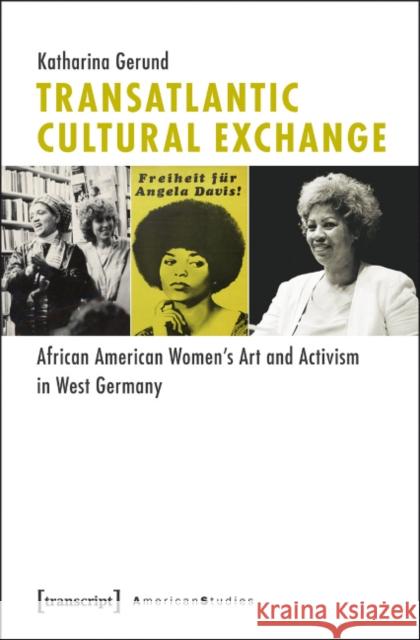Transatlantic Cultural Exchange: African American Women's Art and Activism in West Germany » książka
Transatlantic Cultural Exchange: African American Women's Art and Activism in West Germany
ISBN-13: 9783837622737 / Angielski / Miękka / 2013 / 320 str.
Transatlantic Cultural Exchange: African American Women's Art and Activism in West Germany
ISBN-13: 9783837622737 / Angielski / Miękka / 2013 / 320 str.
(netto: 209,43 VAT: 5%)
Najniższa cena z 30 dni: 217,20 zł
ok. 30 dni roboczych
Bez gwarancji dostawy przed świętami
Darmowa dostawa!
From Josephine Baker's performances in the 1920s to the 1970s solidarity campaigns for Angela Davis, from Audre Lorde as "mother" of the Afro-German movement in the 1980s to the literary stardom of 1993 Nobel Laureate Toni Morrison, Germans have actively engaged with African American women's art and activism throughout the 20th century. The discursive strategies that have shaped the (West) German reactions to African American women's social activism and cultural work are examined in this study, which proposes not only a nuanced understanding of African Americanizations as a form of cultural exchange but also sheds new light on the role of African American culture for (West) German society, culture, and national identity.
From Josephine Baker's performances in the 1920s to the 1970s solidarity campaigns for Angela Davis, from Audre Lorde as "mother" of the Afro-German movement in the 1980s to the literary stardom of 1993 Nobel Laureate Toni Morrison, Germans have actively engaged with African American women's art and activism throughout the 20th century. The discursive strategies that have shaped the (West) German reactions to African American women's social activism and cultural work are examined in this study, which proposes not only a nuanced understanding of "African Americanizations" as a form of cultural exchange but also sheds new light on the role of African American culture for (West) German society, culture, and national identity.











